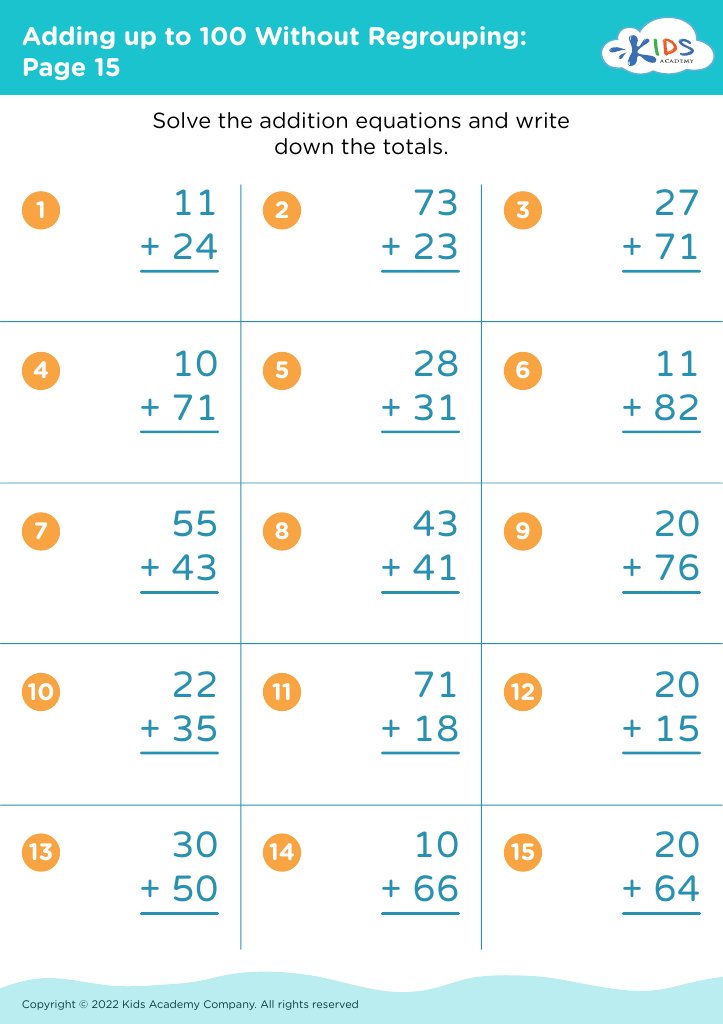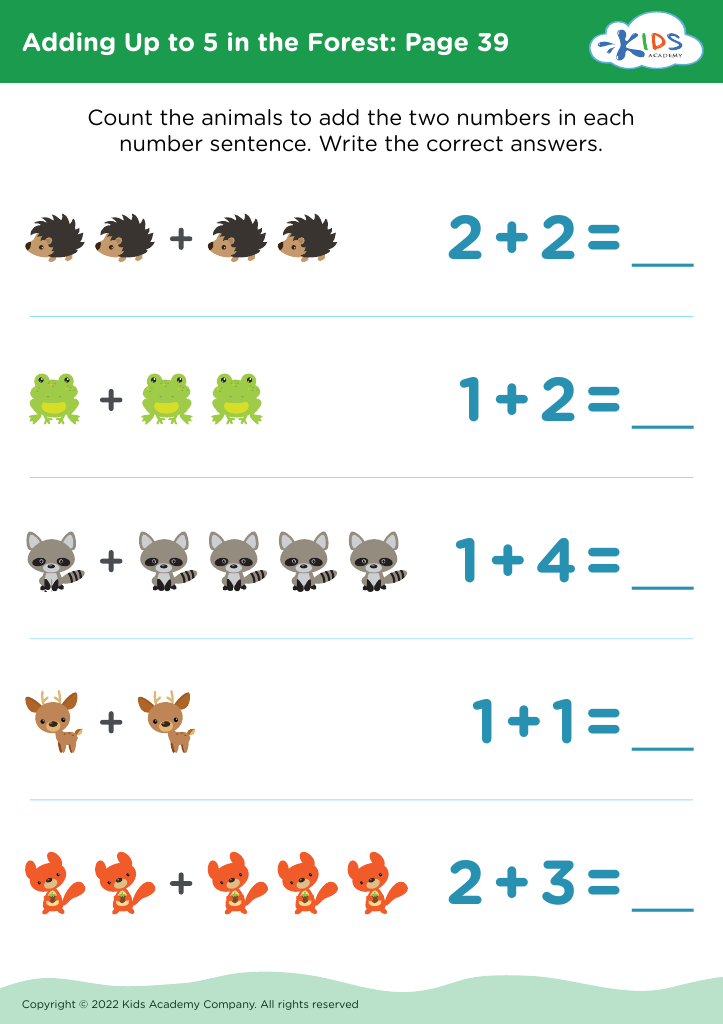Understanding instructions Addition & Subtraction Worksheets for Ages 4-8
3 filtered results
-
From - To
"Understanding Instructions Addition & Subtraction Worksheets for Ages 4-8" are expertly designed to enhance young learners' math skills while ensuring they grasp essential instructions. These engaging worksheets from Kids Academy cater to children aged 4-8, focusing on fundamental addition and subtraction concepts. By incorporating clear, easy-to-follow directions, these worksheets help children develop crucial comprehension skills, making math learning effective and fun. Emphasizing hands-on practice, the activities not only boost arithmetic proficiency but also foster a love for learning through visually appealing and thoughtfully crafted exercises. Equip your child with the confidence and skills needed for math success with these dynamic worksheets.
Understanding addition and subtraction at ages 4-8 forms the foundation for a child's future success in mathematics and beyond. These early arithmetic skills are crucial because they develop a child's numerical literacy, which is essential for problem-solving across all subjects. When parents and teachers prioritize these foundational concepts, they are rooting a child's confidence in their ability to manage mathematical challenges.
At this stage, children's brains are like sponges; they are rapidly developing and able to absorb new information more effectively. By engaging with addition and subtraction early on, children enhance their cognitive skills including memory, attention, and logical thinking. These abilities will serve them well in more complex mathematical operations and critical thinking tasks later in life.
Furthermore, understanding these basic mathematical operations helps cultivate a positive attitude towards learning. It allows children to experience success and satisfaction through mastery, building resilience and adaptability. Parents and teachers, by showing enthusiasm and providing varied, interactive learning experiences, can significantly inspire children's interest and enjoyment in mathematics.
Neglecting to solidify these basic skills can lead to frustration, gaps in knowledge, and a lack of confidence, making future learning much harder. By caring about and investing time in teaching addition and subtraction, parents and teachers set children on a path of lifelong learning and achievement.



















